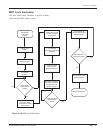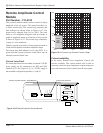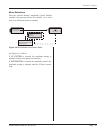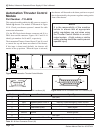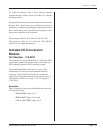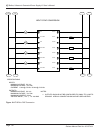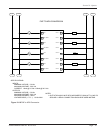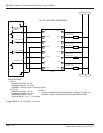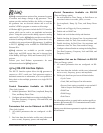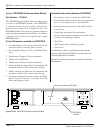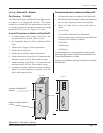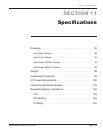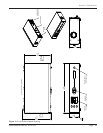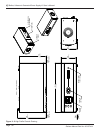
Page 89
Section 10 - Options
Dukane Manual Part No. 403-574-01
iQLinQ communication options allow automated systems
to monitor and change settings in iQ generators. These
options provide machine builders the ability to integrate
the generator into an electrical cabinet and to use the
machine’s HMI to program or monitor weld settings.
All Dukane iQ LS generators include the RS-232 Interface
option, which can be used to set amplitude and monitor
power. Using this option avoids adding expensive analog
cards into PLC racks. iQLinQ also provides a cost effective
solution for adding the Weld by Energy feature that is only
available in the more advanced iQ generators. In addition
to RS-232, iQLinQ is also available for PROFIBUS and
Ethernet/IPTM.
iQLinQ solutions are available to provide complete
ladder logic and HMI screens that can be dropped into
Allen Bradley (RSLogix 5000) and Siemens (Step 7) PLC
projects.
Contact your local Dukane representative for more
information about the iQLinQ options.
iQLinQ
RS-232 Interface Option
The RS-232 Interface option allows the
iQ
generator to
connect to a PLC’s serial port. Each generator requires a
dedicated connection to automation, so it is not possible to
daisy-chain or bus multiple generators on a single RS-232
connection.
Control Parameters Available via RS-232
(Time [only] option)
1. Set these parameters: Weld Time, Amplitude, Ramp Up
Time, and Ramp Down Time.
2. Congure advanced hardware settings including Phase,
Free Run Frequency, Frequency Lock and Hold, and
Frequency Limits.
Parameters that can be Obtained via RS-232
(Time [only] option)
1. All control parameters that are congured via RS-
232.
2. Real time data that includes welder state (ultrasound
active or not), frequency, power, and amplitude.
Control Parameters Available via RS-232
(Time and Energy option)
1. Set weld method to Time, Energy, or Peak Power. set
associated values in seconds, joules, or watts.
2. Set Amplitude, Ramp Up Time, and Ramp Down
Time.
3. Enable and set Trigger by Power parameters.
4. Enable and set Hold Time.
5. Enable and set Afterburst delay and duration.
6. Enable checking for Suspect Parts. Set maximum and
minimum values for Time, Power and/or Energy.
7. Enable checking for Bad Parts. Set maximum and
minimum values for Time, Power and/or Energy.
8. Congure advanced hardware settings including Phase,
Free Run Frequency, Frequency Lock and Hold, and
Frequency Limits.
Parameters that can be Obtained via RS-232
(Time and Energy option)
1. All control parameters that are congured via RS-
232.
2. Real time data that includes welder state (ultrasound
active or not), frequency, power, and amplitude.
3. Weld cycle data from previous weld that includes:
• Cycle Count
• Good, Bad, and Suspect Part information
• Process Limit setting exceeded or not reached if
Bad or Suspect Part checking is enabled
• Weld Time
• Weld Energy
• Peak Power
For information on how to control and/or monitor specic pa-
rameters, iQ Generator RS-232 Communication and Control
documentation is available.
Signing a non-disclosure agreement is required to obtain this
documentation.
TM



